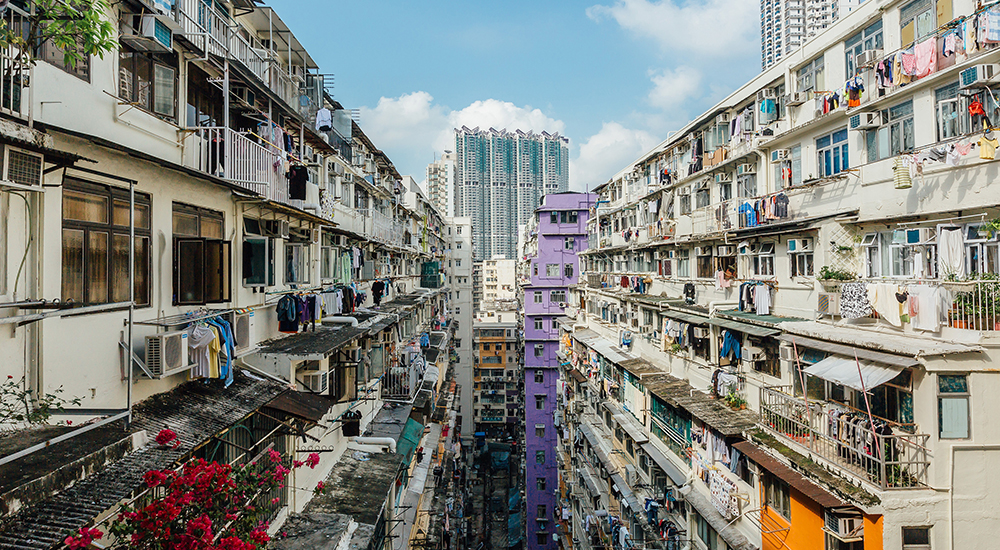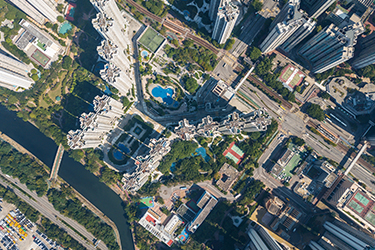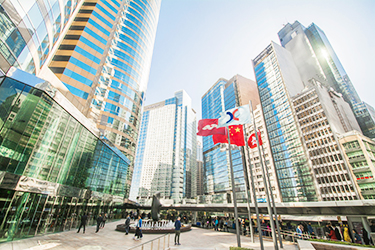
12 January 2018 - Most likely not. Hong Kong’s position as a key Asian financial centre, stable market activity, economic growth, wealth, borrowing patterns and mainland Chinese influence, suggest that the city’s economy is relatively safe. However, considering that the Hong Kong economy and consumer sentiment depend on the health of global financial markets, it remains susceptible to black swan events—random, and unexpected occurrences like the one that caused the 1997 crash. Unpredictable global crises aside, here is why we believe it is unlikely that the Hong Kong property market will crash in 2018:
Market Stability
Real estate bubbles usually occur when interest rates reach 7 per cent or higher, so with Hong Kong’s interest rates standing at around 3 per cent, it’s unlikely that they would reach dangerous levels anytime soon. In fact, the first stage of an interest rate upcycle is typically driven by economic growth—a positive sign for real estate markets.
Since the United States Federal Reserve’s interest rate hike in mid-December 2017, the Hong Kong Monetary Authority has followed suit, increasing its base lending rate by 25 basis points to 1.75 per cent. That said, Hong Kong’s interest rates are also influenced by the independent actions of Hong Kong and Chinese banks, which have yet to change their prime rates. So, while an increase in local mortgage rates may slow the growth of Hong Kong property prices, it would take years for interest rates to reach levels that could materially curtail housing prices.
And, while occasional increases in buying activity have been noted in 2017, market activity remains similar to historical averages. Housing supply, meanwhile, remains tight, with the overall vacancy rate hovering at about 4 per cent. Given the limited housing supply and steady demand for housing, Hong Kong property prices appear unlikely to fall dramatically (i.e. to crash).
More Affordable than You Think

One key reason why Hong Kong real estate is so costly is because of its low supply and high demand: according to the Demographia International Housing Affordability Survey, the city is, for the seventh year, the most unaffordable place to live, with the average Hong Kong apartment costing 18.1 times the gross annual median income in the third quarter of 2016. However, this survey considers only annual income—not total wealth. Paired with a low tax regime, the Hong Kong government’s implementation of stamp duties and borrowing restrictions have led people to save up instead of purchasing homes, resulting in pent-up demand.
So, Hong Kong real estate is probably more affordable than it seems: a report by Knight Frank shows that Hong Kong’s ultra-high-net-worth have grown their wealth by 50 per cent since 2006, and the same report states that the number of millionaires has increased by 49 per cent over the same period. Hong Kong’s GDP has also been steadily increasing over the years. This accumulated wealth counterbalances concerns that low affordability relative to other markets globally would indicate a property bubble. The fact that Hong Kong has had one of the highest ratios of price to annual income (relative to other markets) for many years, including during long periods of increasing prices, highlights that this metric is not a good indicator of a property bubble.
Conservative Borrowing Habits
At an average loan-to-value ratio of 51 per cent, Hongkongers are borrowing what they can afford—before a housing crash, the LTV ratio may reach as high as 100 per cent. And, compared with other global markets—which typically operate at LTV ratios of 70 per cent or more—the Hong Kong property market remains conservatively leveraged without excess debt. In fact, according to the Census and Statistics Department, about two-thirds of owner-occupiers have fully repaid their mortgages.
China

Chinese businesses that are continuing to expand in Hong Kong bring capital through jobs, spending and trade. Coupled with the growing Chinese middle-class and wealthy population and their desire to diversify their investments, this has benefited the Hong Kong property market—despite cooling measures in Hong Kong and capital flow restrictions in China. Given that the Chinese economy is expected to grow past US$33 trillion over the following two decades, it is very likely that Chinese investment dollars will continue to flow into the Hong Kong property market.



